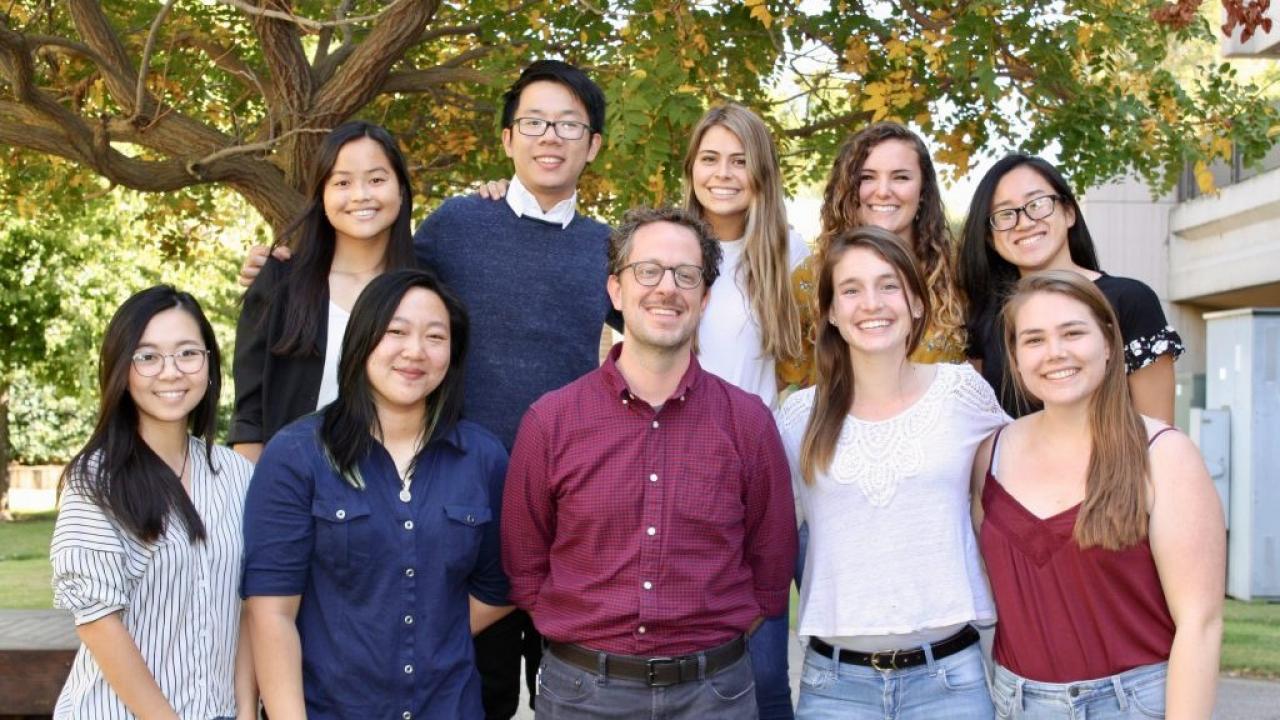
A New Gold Standard for Early-Stage Cancer Diagnosis
Biomedical engineering assistant professor Randy Carney and his lab are on a mission to find new tools to diagnose very early-stage cancer. A new five-year, $2.5 million project funded by the NIH National Cancer Institute seeks to develop next-generation nanotechnology to identify traces of cancer in blood, saliva or sweat samples to find the disease earlier and save more lives.
To do this, Carney and his team study exosomes, also known as extracellular vesicles. Exosomes are tiny nanoparticles in bodily fluids that were once thought to be cellular waste, but actually carry genes, proteins and lipids from their cell of origin, including cancer cells. However, there may be one cancer vesicle out of trillions in a given sample, so the team needs to both find and highlight them.
“When the cancer cell spits it out, it’s like a needle in a haystack,” said Carney. “So the core of our project is to try to distinguish those tumor vesicles from the healthy ones.”
To do this, the team plans to engineer gold nanoparticles with targeting molecules to literally light up the cancer exosomes. While different types and subtypes of cancer have different chemical markers, the team has identified five cancer-associated proteins to focus on for their initial tests. They then insert five corresponding types of gold nanoparticles that bind to each of these proteins and light up differently when the team shines a light or weak laser on them.
The nanoparticles also allow them to sense these particles with high chemical sensitivity—the more nanoparticles they have bonded to a cancer exosome, the more they know about its chemical makeup. This could lead to new insights not only about cancer, but also about exosomes’ composition and distribution in different samples.
“A really realistic secondary goal is to start to be able to get answers to questions that we didn’t even know to ask,” he said. “It’ll be kind of an enabling technology in that way.”
The team will begin by collecting data from advanced-stage cancer patients to learn which markers and patterns correspond to different types and stages of cancer. Because it uses bodily fluid samples, the technology is also less invasive and more accurate than traditional biopsies, which require surgery and can give inaccurate readings because tumors can be heterogeneous or hard to find if they’re small enough. This new method will offer an upgrade and a major step forward in cancer diagnosis.
“The technology is hard to translate to real patient outcomes, but it has great promise and it’s super exciting to try to use it successfully,” he said. “It’s super inspiring for a whole group to be working on something that’s so directed and has a great potential outcome.”
Because this type of work is new, Carney expects that tests will reveal new insights about how cancer progresses that can be used to find and diagnose the disease earlier on, which is key to saving more lives.
“One of the things we know best is that when we catch the cancer early on, the outcomes are way better,” he said. “It’s feasible that in our lifetimes, cancer will be a manageable disease, but we need technologies like this to figure out how to do that.”
